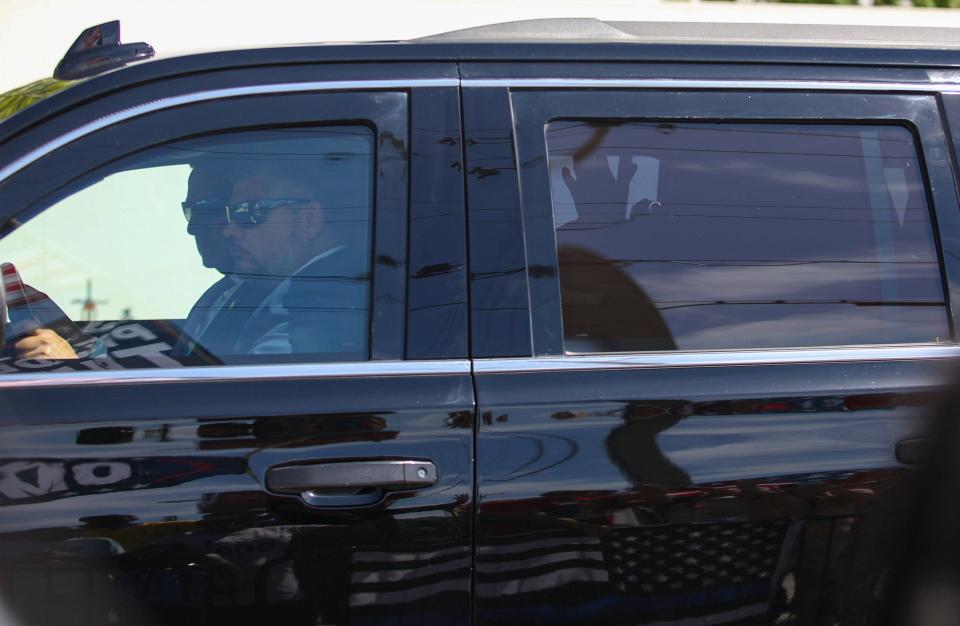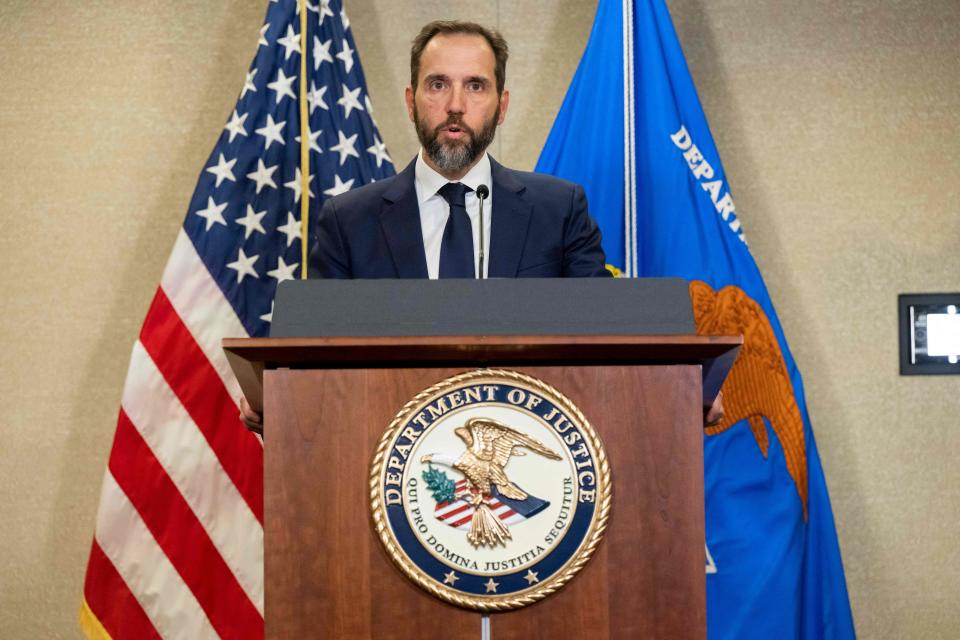Judge in Trump classified documents case proposes 'insane' jury instructions, experts say
The judge presiding over charges against former President Donald Trump for allegedly hoarding classified documents after leaving the White House proposed on Monday jury instructions for the eventual trial that favor his claim that he declassified the records.
U.S. District Judge Aileen Cannon’s proposal tips the scales so far in Trump’s direction that legal experts say the prosecutor, Justice Department special counsel Jack Smith, might ask an appeals court to remove her from the case.
Joyce White Vance, a former U.S. attorney, said the Presidential Records Act isn’t a way around rules for handling classified documents because the records are still government property, not Trump’s personal possessions.
“Expect their response to be hard-hitting,” Vance said of prosecutors in a post on Substack. “The bottom line is that the Presidential Records Act doesn’t forgive Trump for violating criminal laws regarding handling of national secrets.”

Cannon proposed jury instructions for Trump's lawyers, prosecutors to 'engage'
Cannon gave lawyers for Trump and Smith until April 2 to submit proposed jury instructions for the eventual trial. The order on Monday came after a hearing in which she didn’t resolve the dispute over whether the documents fell under the Presidential Records Act.
But her order called for lawyers on both sides to “engage” with two possible instructions she proposed.
In one, Cannon said jurors should “make a factual finding as to whether the government had proven beyond a reasonable doubt” the records are personal or presidential.
In the other, Cannon proposed telling jurors “a president has sole authority under the PRA to categorize records as personal or presidential during his/her presidency. Neither a court nor a jury is permitted to make or review such as categorization decision.”
Cannon's proposed jury instructions 'insane' and 'crazy': legal experts
Legal experts blasted the order as “insane” and “nuts.”
“This second scenario is legally insane,” and under it Cannon could simply dismiss the charges, said Bradley Moss, a national-security lawyer.
George Conway, another lawyer and frequent critic of Trump, argued Cannon shouldn’t be hearing the case and shouldn’t even be a federal judge. Cannon was appointed by Trump and has been widely criticized for decisions that have delayed the trial, including two overturned by the 11th U.S. Circuit Court of Appeals.
“This is utterly nuts,” Conway said.
Vance said both proposals from Cannon "virtually direct the jury to find Trump not guilty."
“It turns out it’s two pages of crazy stemming from the Judge’s apparent inability to tell Trump no when it comes to his argument that he turned the nation’s secrets into his personal records by designating them as such under the Presidential Records Act,” Vance said.

What is the Presidential Records Act?
The Presidential Records Act designates all presidential records public property to be stored at the National Archives. Exceptions are made for personal documents such as birthday cards a president receives while in office.
Trump is charged with retaining about 100 national defense documents dealing with secrets such as defense and weapons capabilities of U.S. and foreign countries, and U.S. nuclear programs, and then conspiring to hide them at his club Mar-a-Lago in Florida. The FBI seized them among thousands of other records during a search in August 2022.
Trump has argued repeatedly that he could take records with him after leaving the White House, despite the Presidential Records Act giving ownership to the National Archives and Records Administration.
In arguing the case should be dismissed, Trump contends he designated the classified records personal before leaving the White House. Trump contends that courts can’t review his decisions over what records were personal, which he could keep, and which were official, which he would have to give the National Archives. The Presidential Records Act makes disputes about the records subject to civil litigation rather than through criminal charges
Trump also argued he declassified them, despite producing no documentation for his assertion. In fact, Trump was recorded in a 2021 meeting saying he kept “secret” military information that he had not declassified.
“As president, I could have declassified, but now I can’t,” Trump said, according to the transcript obtained by CNN.

Appeals court called Trump's declassification argument a 'red herring'
Legal experts expect Smith to appeal the jury instructions to the 11th U.S. Circuit Court of Appeals if Cannon adopts what she has proposed. Her order seems to convey the same misunderstanding of the Presidential Records Act as when the 11th Circuit overturned her order for a third-party review of the records.
Cannon had ordered a special master, a retired federal judge, to review the records seized at Mar-a-Lago to determine whether they fell under the Presidential Records Act. Prosecutors had to halt their investigation awaiting the results.
But a three-judge panel of the 11th Circuit unanimously halted the review by calling Trump’s argument that he declassified the documents so that they fell under the Presidential Records Act a “red herring” because the change wouldn’t have made the government records personal.
“The declassification argument is a red herring because declassifying an official document would not change its content or render it personal,” the appeals panel wrote. “So even if we assumed that Plaintiff did declassify some or all of the documents, that would not explain why he has a personal interest in them.”
Moss said if Cannon adopts the jury instructions as she proposed them, Smith could appeal to the 11th Circuit “for a quick reversal.”
This article originally appeared on USA TODAY: Judge proposes jury instructions favoring Trump in documents case
